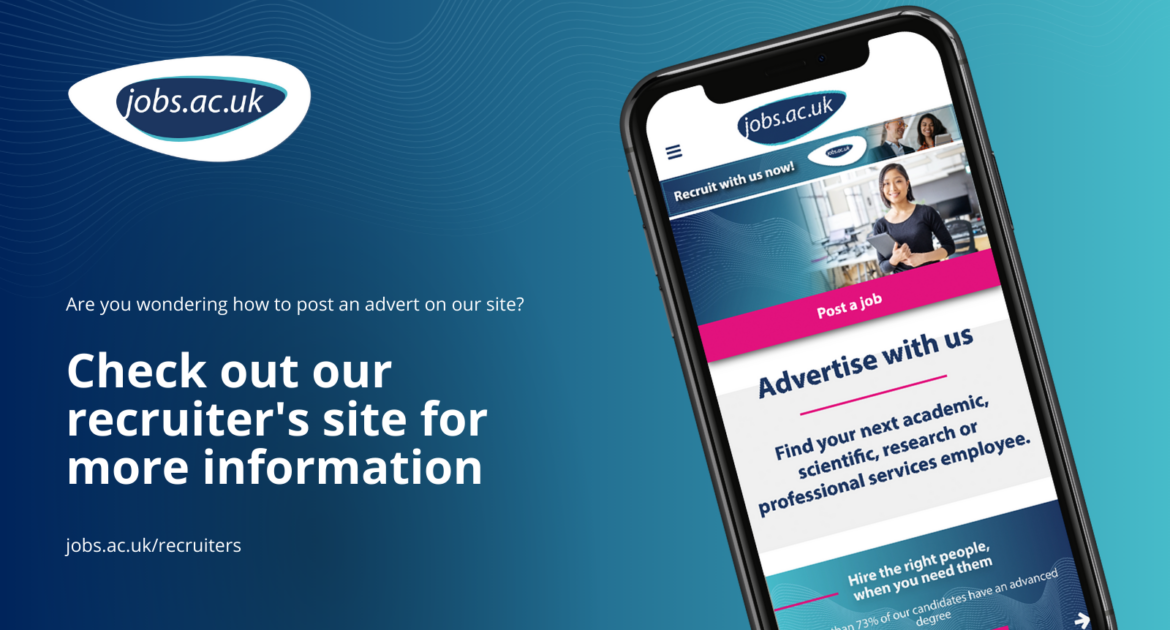Recruitment is changing, and to stay ahead, businesses need to rethink how they attract talent. Job advertising is at the heart of any effective recruitment strategy. A well-written job advert doesn’t just list duties; it tells a story about your organisation, highlights what makes it unique, and shows candidates why they should want to join your team.
In a competitive job market, it’s about more than just reaching people—it’s about connecting with the right ones. By using digital tools and platforms, you can target your audience and make sure your ads speak directly to the candidates you’re looking for.
Thinking ahead means planning for the future of your workforce. Effective job advertising ensures you’re attracting people who will not only fill roles but also grow with your organisation. Start advertising with purpose today to build the team you need for tomorrow.
How can jobs.ac.uk Help?
At jobs.ac.uk, we make recruitment easier for organisations in higher education, research, and professional services. Our goal is to connect you with the right people—those who are not only qualified but also passionate about making a difference.
We’ve built a Recruiter’s platform that can show you in detail which products help your adverts stand out and reach your target audience. Whether you’re looking to hire for academic roles in higher and further education, public sector jobs, or commercial sector, we’ve got the tools and experience to help you attract top talent.
With over 20 years of experience, we understand the challenges of recruitment. That’s why we offer practical support, tailored advertising solutions, and advice to strengthen your recruitment strategy, you can find out more about us here. We’ll also help you showcase your organisation’s values and culture to make your roles truly appealing.
If you are ready to take the next step, feel free to contact us to kick start your recruitment strategy!


Share your comments and feedback